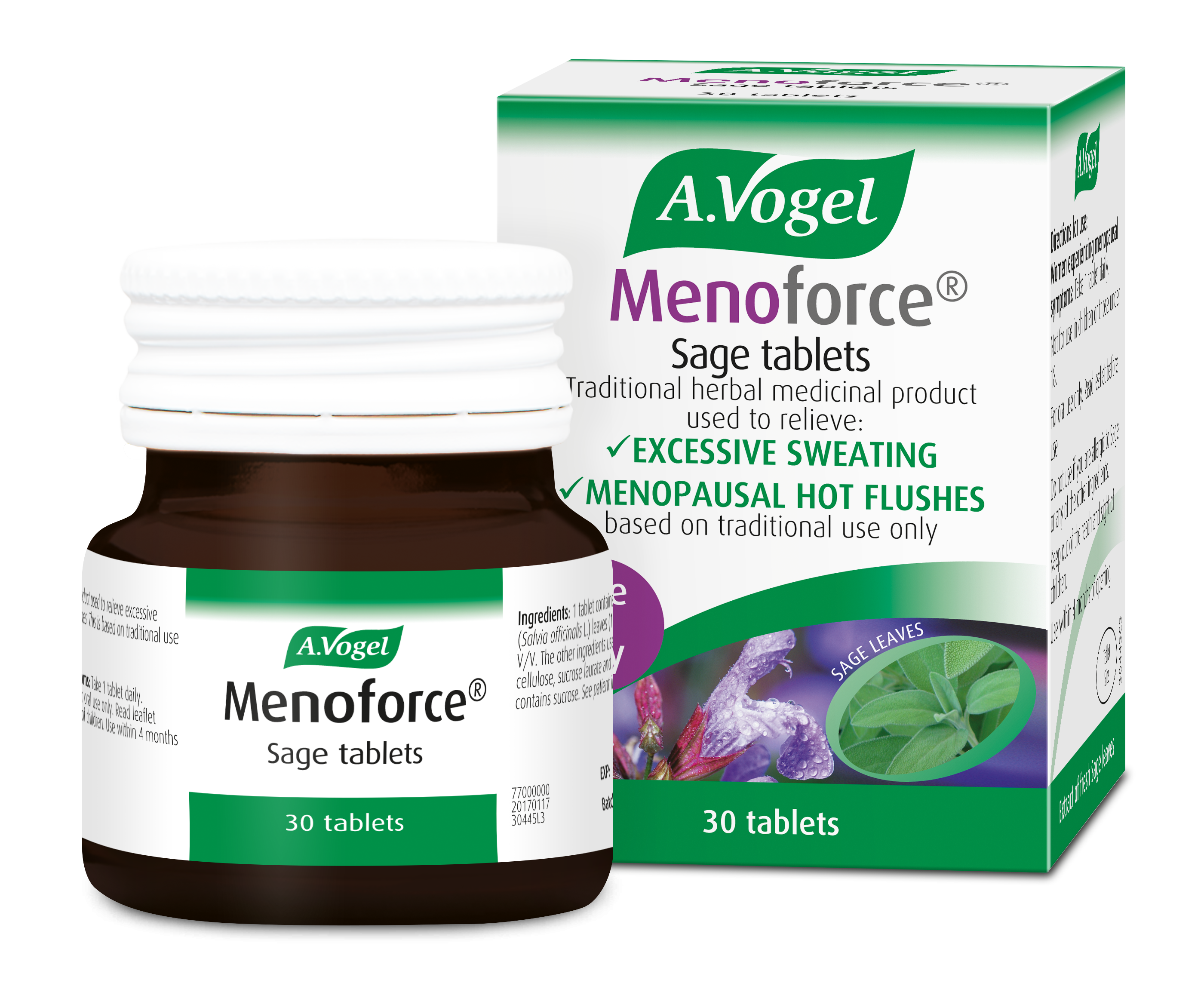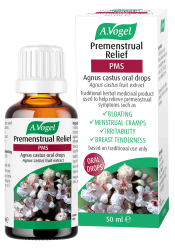An introduction to periods and sweating
Do you find your temperature fluctuates at different times of the month? Do you get really hot and sweaty in bed as a result of so-called ‘night sweats’? But hot flushes and night sweats only happen to menopausal women, right? Not necessarily. Pre-menopausal women have the same sex hormones as women going through the menopause and believe it or not these hormones can fluctuate significantly during each and every menstrual cycle too.
Your hormones fluctuate month to month in order to give you your period and a host of symptoms can arise as a result of this; including changes in your body temperature.
If you are worried about changes in your body temperature or they occur alongside other symptoms which aren’t a result of your period, it might be worth a trip to your doctor. Excessive sweating could also be a sign of another condition such as hyperthyroidism.
On this page I explain some of the mechanisms behind changing body temperature in and around the time of your period and what can be done to help. This includes a range of dietary changes, practical changes you can make at home or through the use of herbal remedies.
How can your period cause you to sweat?
There are a number of ways in which your menstrual cycle can affect your body temperature. This area isn’t well understood but we are gradually learning more as time goes on.
- Hormones – If your changes in body temperature are occurring around the time that your period is due each month, it is likely that hormones are having some part to play. Some women find they experience a very slight increase in body temperature around the time of ovulation due to a spike in progesterone. From then on, during the second half of your cycle progesterone levels stays elevated compared to oestrogen and your body temperature stays higher. This means that you might feel warmer throughout these two weeks leading up to your period but any hormonal cause of a raised body temperature is likely to diminish nearer the time of your period as your progesterone levels begin to fall
- Affects on the hypothalamus – Fluctuating female sex hormones are thought to somehow influence the temperature control centre in the brain, the hypothalamus. Exactly why or how this happens isn’t well understood but big fluctuations in oestrogen in particular are thought to be problematic. A drop in oestrogen in menopausal women is thought to give rise to hot flushes and night sweats and this might happen to a lesser extent if a younger woman has a hormone imbalance
- Menopause – Experiencing night sweats or hot flushes could be a sign you are approaching the menopause. The average female goes through the menopause in the UK at between 45 and 55 years of age. The peri-menopause is the preliminary stage of the menopause, the period of time before the final menstrual cycle, and it is during this stage that many symptoms can arise at once. Visit our menopause pages for more information on what to look out for
- Being over or under weight – Your body weight can have a big influence on hormones. Fat is very important – both the fat you consume in your diet and how much you have in the form of adipose tissue stored around your body. The consumption of healthy fats such as the essential fatty acids omega-3 and 6, is necessary for the proper production of many hormones. Then, if you have too much adipose tissue, it can affect levels of your hormones, oestrogen for example. Aim to keep your body weight within a healthy BMI and consume healthy fats regularly as part of a healthy balanced diet
- Other symptoms of periods – Other symptoms of your menstrual period could be contributing to an increase in body temperature. If your periods are particularly painful this can make your feel warm and flustered or if you find you feel angry or irritated as a result of mood swings, this could also be having an effect. Pay attention to your symptoms in order to better understand what’s causing you to sweat
- Medication – Be aware of any side effects of medication or contraception you are on. Progesterone-only methods of contraception such as the mini pill of the implant could potentially keep your body temperature slightly raised and make you more likely to sweat.
Diet, lifestyle and home remedies
There are some simple steps you can take at home and in the workplace in order to try and keep sweating at bay. Overheating can be embarrassing and inconvenient, especially if the change in body temperature comes over you quite suddenly. Feeling embarrassed or flustered could make the issue worse and this can turn into a vicious cycle.
- Watch your diet – Eating the right foods and in the right amounts can help to keep your body temperature stable. Digesting and processing the food you eat requires energy and this energy generates heat – this is called diet-induced thermogenesis (DIT). The amount and the calorific content of the food you eat will determine how much heat you produce digesting it. Foods heavy in animal protein or saturated fats can be more taxing on the body and are a bigger burden on the digestive system – there be could be some truth in the prospect of ‘meat sweats’! Try incorporating more plant sources of protein and avoid fatty, fried foods – try not to give in to those comfort food cravings around the time of your period!
- Limit caffeine – Caffeine stimulates the sympathetic nervous system. This puts your body into ‘fight or flight mode’. As a result of this your heart rate, breathing rate and temperature increase in preparation. Cut down and swap caffeinated drinks for plenty of water, herbal teas or a coffee substitute instead and you are less likely to break out in a sweat
- Have a warm bath! – Yes, this might not make much sense initially, but actually, it could help. By lying in a warm bath this encourages your body to try and keep cool. This means when you come out from the warmth of your tub, your body remains in ‘keep cool mode’ and you are less likely to overheat
- Make some practical changes to your bedroom routine – Many women find that they get too hot in bed and suffer from what we call night sweats. Opt for loose-fitting cotton or linen pyjamas (synthetic materials may make you more likely to sweat) and try opening your bedroom window a little during the night.
Herbal remedies to help
In addition to home remedies introducing a herbal remedy can often be very beneficial.
- Sage – Menoforce® Sage tablets is a licensed herbal remedy for the relief of excessive sweating and hot flushes. This product is targeted mainly at menopausal women but often younger women going through the peri-menopause can struggle with body temperature regulation throughout their monthly cycle
A.Vogel Menoforce Sage Tablets for Menopausal Hot Flushes and Night Sweats, One-a-Day, 30 tablets
£15.99 (30 tablets) In Stock
- Soy isoflavones – Soy isoflavones can offer support during all stages of the menopause as they act to gently support your oestrogen levels. This can also be useful for younger women who are experiencing hormone imbalances. Low oestrogen could be contributing to your sweating, especially if you typically experience very light, irregular periods and low mood.
Please note, if you are taking a hormonal contraceptive such as the pill, hormone-balancing herbal remedies may not be suitable for you.
How can my doctor help?
If home and herbal remedies fail to help to get erratic changes in body temperature under control, it might be time to pay your doctor a visit.
Your doctor will most likely ask when you find you sweat the most and how this relates to your menstrual cycle. If hormones seem to be behind the sweating they might suggest you try a hormonal contraceptive such as the pill, or if you are approaching menopause they might discuss the possibility of Hormone replacement therapy (HRT). Always be sure you are aware of any side effects of any medication you are considering and what the long-term implications are.









